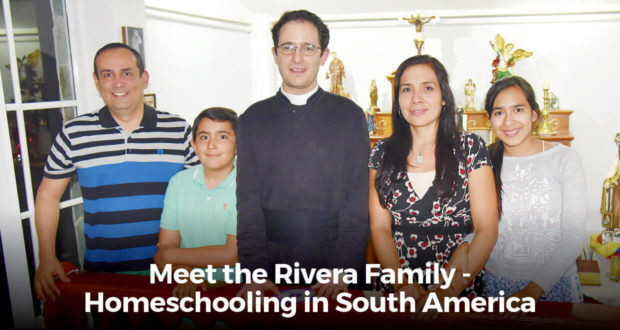Summary
Homeschooling gave the Rivera family time for family activities, prayer, and protection from worldly mindsets, but also a much more advanced academic level.An Interview with Dr. Juan Carlos Rivera Chavarro and his wife Carolina Pena Portilla de Rivera by Pedro Moreno Giraldo. Translated by Manuel Vicente.
Please introduce yourselves.
What is your background and what are your professions?
Carolina: My name is Carolina. I actually graduated as a bacteriologist, but for some time now, I’ve been working very proudly as a housewife. I am in charge of the education of our children.
Juan Carlos: I am an ophthalmologist. We currently live in Circasia, which is in the Department of Quindio in Colombia. We have been here for three years now, having previously lived in the city of Cali for thirteen years.
After so many years in town, surrounded by city influences, we decided to move to the countryside, where we could live a more rural life devoted to giving everything to God with and for our children.
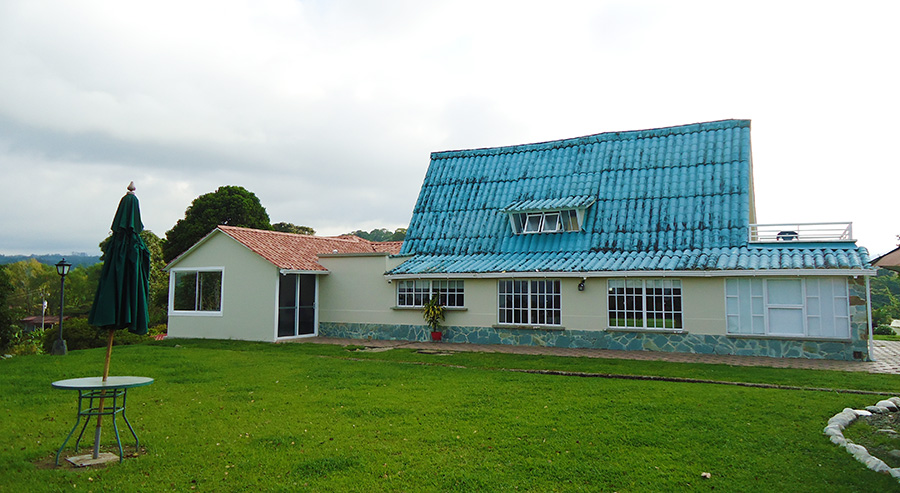
How did you decide to begin homeschooling?
Juan Carlos: First of all, we were impressed by the example of a large homeschooling family we know, who showed us what it is and how it can be. Admittedly, I was against homeschooling at first because I thought that “formal” schooling (brick and mortar schooling) was the best. I didn’t think it was possible to achieve a complete education at home.
However, my wife, who was more or less immediately convinced, kept praying for me to be enlightened. Through the influence of those prayers, I ended up deciding to investigate homeschooling more closely without telling her.
I looked at education statistics coming from Spain and other European countries. The statistics gave testimony to the value of homeschooling, showing that homeschooled children in those countries routinely performed at a higher academic level (typically 30-35% higher) than their public-schooled counterparts.
More importantly, homeschooled children in these countries demonstrated stronger values and more advanced communication and social skills. Those who were against homeschooling frequently raised a question that resonated with me, which was, “How can you take children out of the schools? How will they become socialized?”
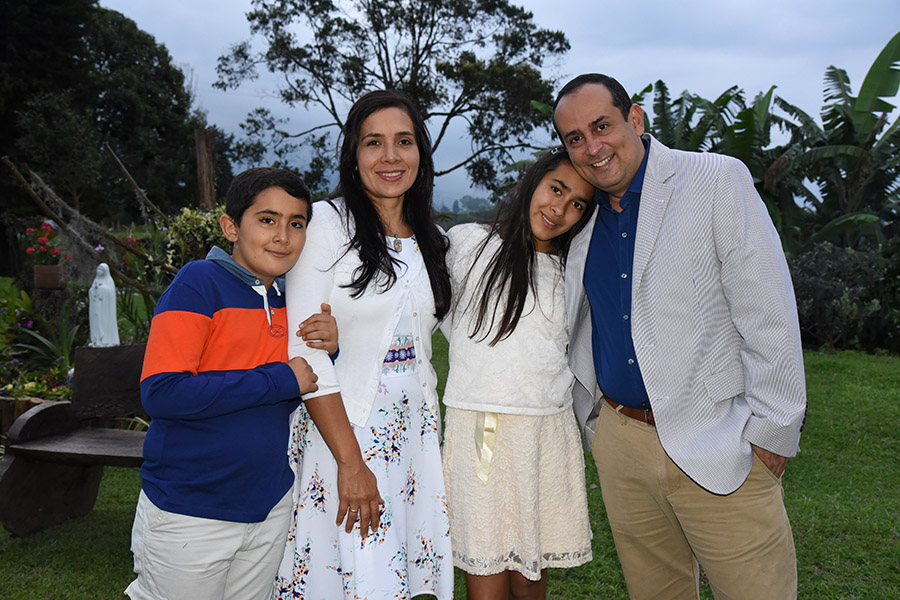
But again, the statistics were striking. Homeschooled children communicated better not only with other children, but also with their parents and with other adults by comparison with children in other school settings. Homeschooled children were seen to communicate with greater completeness, with more sincerity, and in more complex ways.
Reading this information, I was immediately convinced, and told my wife, “I’m ready. Let’s homeschool!” She said, “O.k. Let’s start in two months.” So, it actually happened rather quickly in the end.
By way of an addition, I’d like to comment about Seton Home Study School. When we first began, we knew nothing about Seton. There were other homeschooling programs in Colombia, but unfortunately, they did not really provide the level of academics we were seeking.
When we discovered Seton, it was immediately apparent that they were the best. There was no reasonable alternative to choosing them.
Seton’s curriculum is complete, academically robust, and unequivocally faithful. I am certain that with Seton, we are ahead of other schools on all fronts.
How did you find out about Seton Home Study School?
Carolina: We learned about Seton through another Seton father, who was living in Colombia at the time. He told us of his great satisfaction with the programs offered by the school, and in particular by the academic support provided by Seton. Our own experience has fulfilled everything he led us to expect.
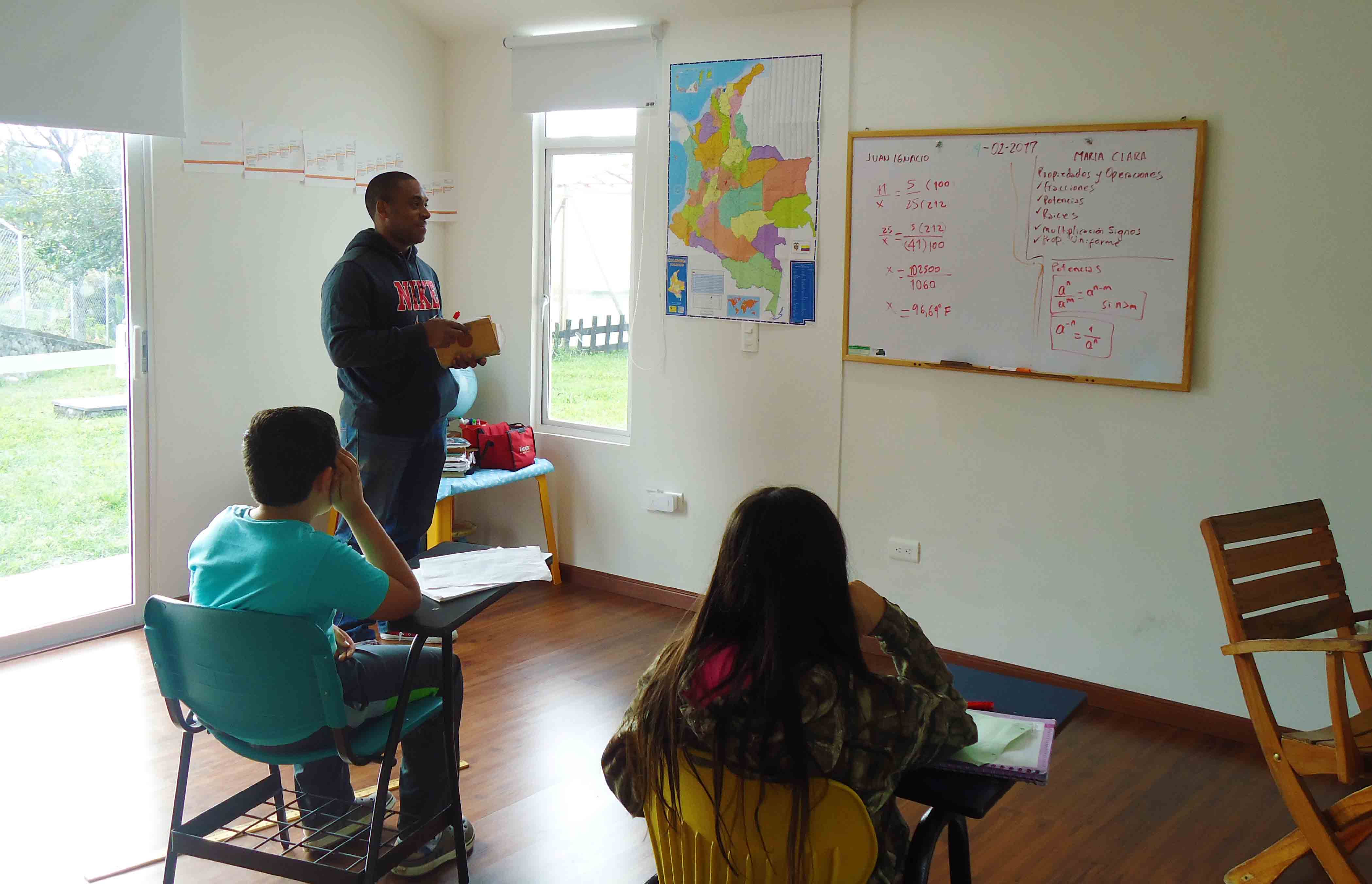
What are the most significant ways in which homeschooling differs from standard brick and mortar schooling?
Carolina: First of all, our children are much more relaxed; they are definitely living a happier life. They have time for family activities and pursuing things that build up a family, such as beginning the day with prayer.
They can take the time to begin their day with God’s blessing by kneeling at our home altar.
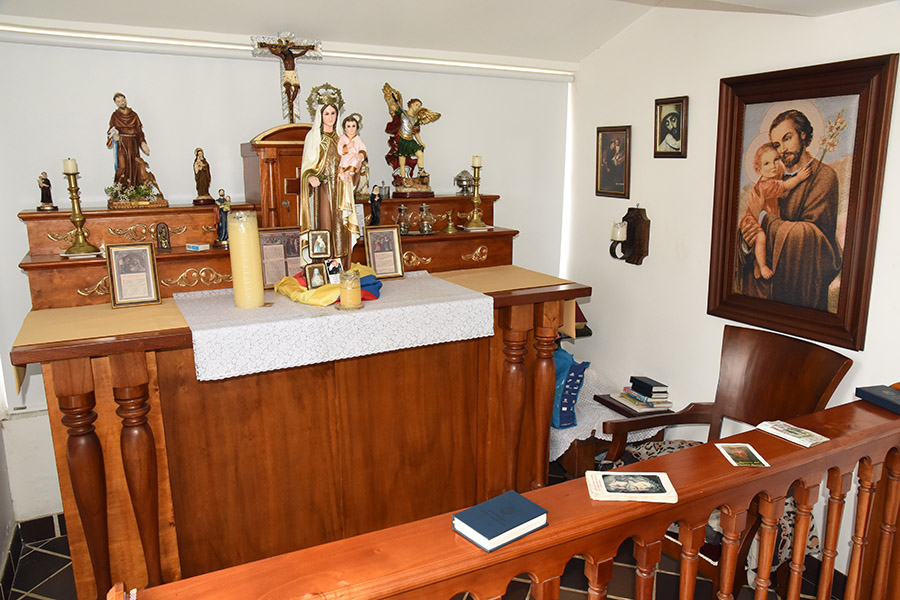
Secondly, our children are protected from the contrary values and worldly mindsets that are rampant throughout society nowadays.
We have never wanted our children to be like the society in general, and have always sought to eliminate the influence of such attitudes in our children’s education. In homeschooling, with God’s help, we are able to impart to our children exactly what is best for them.
Thirdly, our children are performing at a much more advanced academic level. They research much more than would be asked of them in the public schools, where they would be taught a very limited base of knowledge.
In addition, because of homeschooling, the children are able to progress much further in areas that interest them, since there is much more time left for such marvelous pursuits as music (which definitely provides a nice ambience in our home). Both our children are budding musicians, and they are avid readers as well.
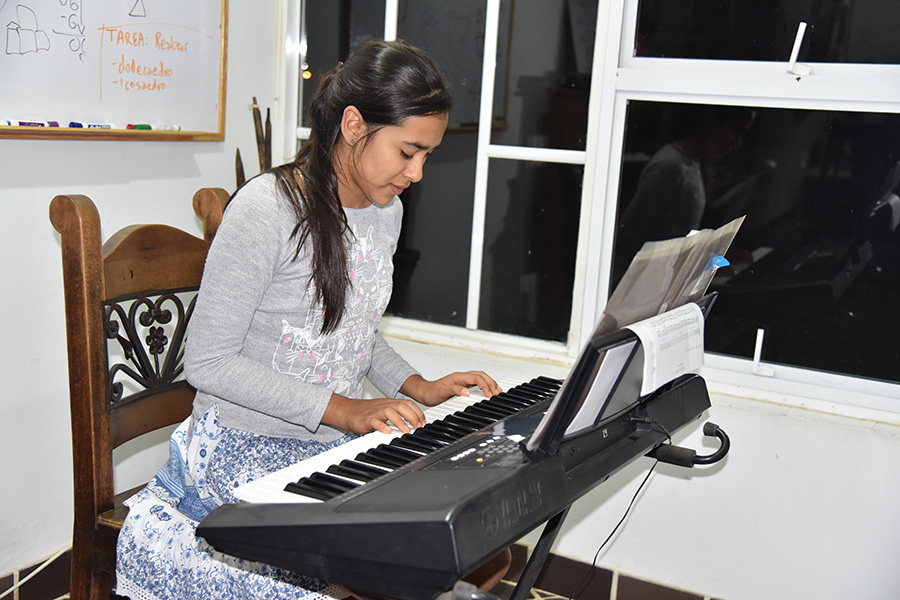
Do you have any advice for other homeschooling parents?
Carolina: I think it is important for parents to remember why they chose homeschooling, so that they will remain motivated when it gets hard. In the difficult current times, homeschooling really is the best option.
We not only protect our children from the many prevalent errors that others seek to imprint upon the souls and consciences of our children, but we also give them much stronger academic foundations, thanks to more efficient study time and the ability to tailor the programs to the individual capacities of our children.
Plus, family ties are much stronger, and children are able to develop better domestic skills and relations.
If you remember these things and put your trust in God, you will experience the wonder of homeschooling.

 Seton Magazine Catholic Homeschool Articles, Advice & Resources
Seton Magazine Catholic Homeschool Articles, Advice & Resources
